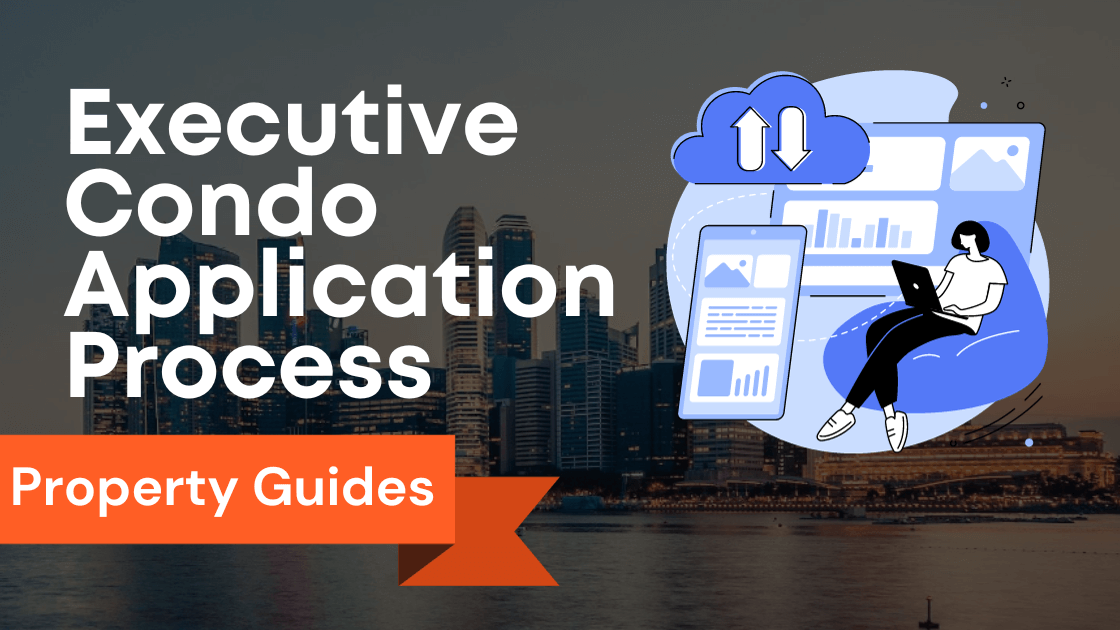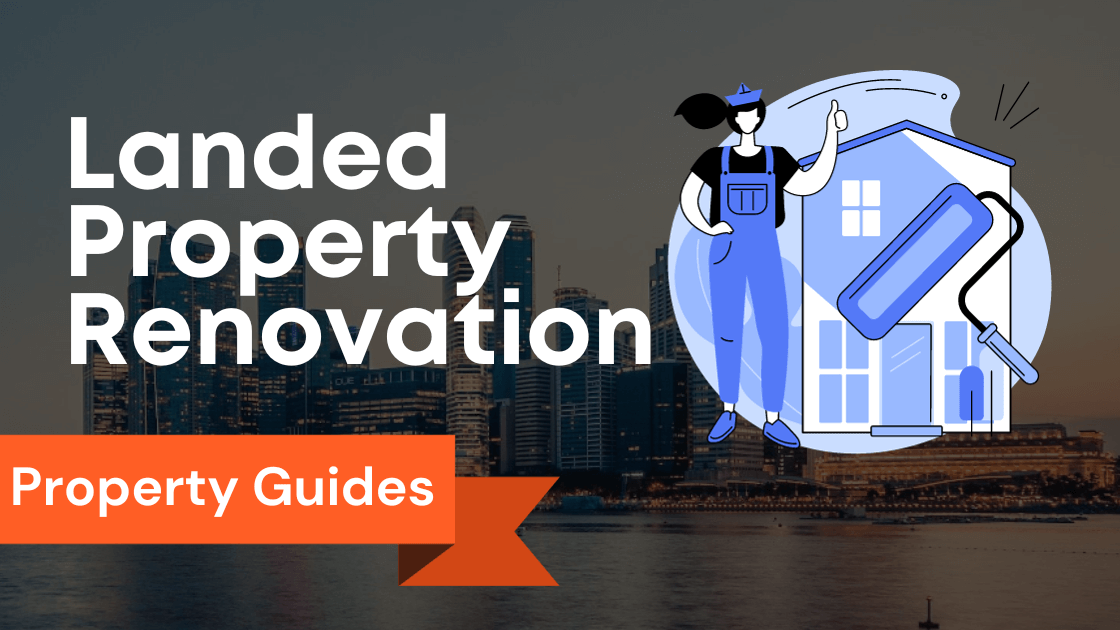Foreigners Buying Property in Singapore

Foreigners buying property in Singapore is a topic of interest for many individuals looking to invest in the country’s real estate market.
Singapore has become an attractive destination for foreign buyers due to its stable economy, strong property market, and high standard of living.
In this article, we will explore the types of property foreigners can buy in Singapore, the process of buying property as a foreigner, and additional considerations for foreign buyers.
What Types of Property Can Foreigners Buy in Singapore?
Under the Residential Property Act, foreigners are generally restricted from buying certain types of property in Singapore, such as vacant residential land and landed properties (semi-detached houses, terrace houses, cluster houses).
However, there are still several options available for foreign buyers.
They can purchase executive condominiums (ECs) during the initial launch period, private housing such as condominium units, and certain commercial properties.
Freehold properties are also available for purchase by foreigners.
How to Buy Property in Singapore as a Foreigner
Buying property in Singapore as a foreigner involves several steps and considerations.
Here are some key points to keep in mind:
- Determine your budget: Before starting your property search, it is crucial to establish your purchasing power and the amount you are willing to spend on a property. Take into account factors such as purchase price, additional costs, and financing options.
- Explore property options: Research the market and explore different property options that align with your preferences and investment goals. Consider factors such as location, amenities, and potential for capital appreciation.
- Engage a property agent: It is advisable to work with a reputable property agent who is well-versed in the Singapore real estate market. An experienced agent can guide you through the buying process, provide market insights, and assist in negotiations.
- Financing options: Foreign buyers can obtain financing from Singapore-based banks, subject to certain restrictions and requirements. It is essential to understand the loan options available to foreigners and the eligibility criteria.
- Additional considerations: Foreign buyers should be aware of any restrictions that may apply to their purchase, such as the Additional Buyer’s Stamp Duty (ABSD) for foreign buyers. It is also important to consider the demand for properties in the chosen area and the potential rental yield if the property is intended for investment purposes.
Additional Considerations for Foreigners Buying Property in Singapore
Foreign buyers should take note of certain additional considerations when purchasing property in Singapore:
- Restricted areas: Sentosa Cove, an exclusive residential enclave situated on Sentosa Island, is open to foreign buyers. However, they are subject to additional restrictions such as the need to obtain approval from the Land Dealings (Approval) Unit.
- Residency status: Foreigners who are Singapore Permanent Residents (SPRs) or hold certain types of work visas may have fewer restrictions when purchasing property. They may also be eligible for housing grants and subsidized housing schemes.
- Seller Stamp Duty (SSD): The SSD is a tax imposed on residential properties sold within a specific holding period. Foreign buyers should be aware of the SSD rates applicable if they decide to sell their property within the stipulated timeframe.
- Property taxes: Foreign buyers are subject to property taxes, including property tax and annual property tax, based on the property’s annual value.
- Residential Property Act restrictions: Under the Residential Property Act, foreign buyers are required to make an economic contribution to Singapore. This can be fulfilled through various channels, such as setting up a business or making a significant investment in the country.
In conclusion, while there are certain restrictions and considerations for foreign buyers, purchasing property in Singapore is still an attractive option.
With its robust property market and well-regulated real estate sector, Singapore offers a range of property types and investment opportunities for both locals and foreigners alike.
https://www.youtube.com/watch?v=o_6mRVaE6MQ
By familiarizing themselves with the regulations and engaging the right professionals, foreign buyers can successfully navigate the process and find their dream property in Singapore.
Key Takeaways
- Foreigners in Singapore can buy private housing, executive condominiums (ECs), and certain commercial properties. Freehold properties are also available. However, there are restrictions on landed properties and vacant residential land.
- The buying process for foreigners involves determining a budget, exploring property options, engaging a property agent, understanding financing options, and considering additional costs like Additional Buyer’s Stamp Duty (ABSD).
- Restricted areas include Sentosa Cove, which is open to foreign buyers but with additional restrictions such as approval from the Land Dealings (Approval) Unit.
- Residency status plays a role, as Singapore Permanent Residents (SPRs) and certain work visa holders may face fewer restrictions and may be eligible for housing grants.
- Sellers Stamp Duty (SSD) is a consideration for foreign buyers, as they should be aware of SSD rates if they decide to sell their property within a specified holding period.
- Property taxes, including property tax and annual property tax based on the property’s annual value, apply to foreign buyers.
- Under the Residential Property Act, foreign buyers are required to make an economic contribution to Singapore, which can be fulfilled through various channels.
- It’s highly recommended for foreigners to work with a licensed property agent in Singapore for professional guidance and navigating the buying process. Agents can provide market insights, legal advice, and assistance with property viewings and negotiations.
- When selecting an agent, choose a licensed agent from a reputable agency, check their experience, and ensure they are well-versed in your specific property requirements.
- Financing is available for foreign buyers through local banks in Singapore, with a maximum loan-to-value (LTV) ratio of around 75%.
- Foreigners are required to pay a higher downpayment, ranging from 25% to 40% of the property value.
- Additional costs include conveyancing fees, registration fees, taxes (Buyer’s Stamp Duty), and ongoing expenses like property taxes and maintenance fees.
Buying a Property with an Agent in Singapore

If you are a foreigner looking to buy property in Singapore, it is highly recommended to work with a licensed property agent.
These professionals have extensive knowledge of the local real estate market and can guide you through the buying process.
Here are some key points to consider when choosing a property agent and the benefits of working with one.
How to choose a property agent
When selecting a property agent, it is important to choose a licensed agent from a reputable property agency.
You can find a list of accredited property agencies on the Council for Estate Agencies (CEA) website or through real estate portals.
It is also advisable to check if the agent is a member of a professional organization, such as the Singapore Estate Agents Association (SEAA).
Additionally, consider the agent’s experience and expertise in the specific area and type of property you are interested in.
If you are looking for a property for investment purposes, choose an agent who has experience in handling investment properties.
If you have specific requirements, such as proximity to international schools or a certain monthly income, communicate these to the agent to ensure they can meet your needs.
What to expect from a property agent
A property agent can provide you with invaluable market advice and insights.
They can guide you in selecting the right type of property based on your budget and preferences.
They can also help you navigate the legal and financial aspects of the buying process, such as understanding the Buyer Stamp Duty and any other applicable taxes or fees.
Furthermore, a property agent can assist you in identifying suitable properties that meet your criteria.
They can arrange property viewings, provide information on the surrounding amenities and facilities, and help negotiate the best deal on your behalf.
An experienced property agent can also offer guidance on the potential rental yield and capital appreciation of the property.
Benefits of working with a property agent
Working with a property agent brings several benefits, especially for foreigners buying property in Singapore.
Here are some advantages:
- Knowledge of residential status requirements: A property agent can help you understand the residential status requirements and restrictions that may apply to your purchase. They can guide you on the types of properties you are eligible to buy based on your residency status.
- Access to affordable housing options: Singapore has a well-regulated public housing sector managed by the Housing and Development Board (HDB). A property agent can provide information on affordable housing options offered by the HDB, such as Build-To-Order (BTO) flats and Executive Condominiums (ECs).
- Assistance with outstanding housing loans: If you have outstanding housing loans in your home country, a property agent can help you understand the loan options available in Singapore. They can guide financing options and connect you with reputable lenders.
- Expertise in local regulations: Singapore has strict regulations governing property purchases, including taxes, stamp duties, and legal requirements. A property agent can ensure that you comply with these regulations and avoid any legal issues.
- Familiarity with property market trends: Property agents have up-to-date information on the latest market trends, including property prices, rental yields, and upcoming developments. This knowledge can help you make informed decisions and maximize your investment.
In conclusion, working with a licensed property agent is highly recommended for foreigners buying property in Singapore.
https://www.youtube.com/watch?v=nCF0o3At16o
These agents can provide professional advice, navigate the complex buying process, and help you find the right property that meets your needs and investment goals.
With their expertise and local market knowledge, they can be invaluable in ensuring a smooth and successful property purchase experience.
HDB vs Private Property in Singapore
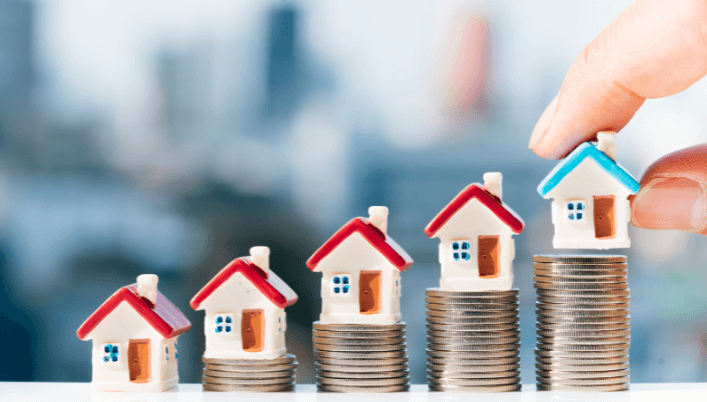
Foreigners looking to buy property in Singapore often face the dilemma of choosing between HDB (Housing and Development Board) flats and private properties.
Each option has its own set of considerations and eligibility requirements.
In this article, we will explore the key differences between HDB and private property, the eligibility guidelines for both, and the pros and cons of each option.
Key differences between HDB and private property
When it comes to property purchases in Singapore, there are major differences between HDB and private property.
HDB flats are primarily meant for Singapore citizens and permanent residents (PRs).
Private properties, on the other hand, can be owned by anyone, including foreigners.
HDB flats are typically more affordable compared to private properties.
They are subject to certain restrictions, such as a minimum occupancy period and a resale levy for PRs.
Private properties, on the other hand, offer more flexibility in terms of ownership and customization options.
Eligibility for HDB and private property
To purchase an HDB flat, eligibility guidelines must be met.
Singapore citizens and PRs are eligible to buy new or resale HDB flats.
Non-Singapore PRs have certain restrictions and can only buy specific types of HDB flats, such as resale flats that are more than 10 years old.
For private property, foreigners are eligible to purchase most types of residential properties, including landed houses and condominiums.
However, there are restrictions on buying certain types of properties, such as restricted residential developments and land parcels designated for public housing.
Pros and cons of HDB and private property
Both HDB flats and private properties come with their own set of benefits and considerations.
Pros of HDB flats:
– Affordable housing options, especially for first-time homebuyers.
– Access to government subsidies and grants.
– Availability of amenities within HDB estates.
– Potential for capital appreciation over time.
Cons of HDB flats:
– Limited customization options compared to private properties.
– Restrictions on reselling within the minimum occupancy period.
– Income ceiling criteria for certain types of HDB flats.
– Payment of Buyer Stamp Duty for PRs and foreigners.
Pros of private properties:
– Greater flexibility in terms of customization and renovation.
– Potential for higher rental yields and capital appreciation.
– Wide range of options, including landed properties and condominiums.
– No restrictions on ownership for foreigners.
Cons of private properties:
– Higher upfront costs and monthly mortgage payments.
– Additional fees such as property taxes, maintenance fees, and sinking fund contributions.
– Limited access to certain amenities and facilities compared to HDB estates.
– Potential for market volatility and fluctuations in property prices.
In conclusion, foreigners looking to buy property in Singapore have the option of choosing between HDB flats and private properties.
While HDB flats provide more affordable housing options with certain eligibility restrictions, private properties offer greater flexibility and customization options.
Foreigners need to consider their budget, long-term goals, and eligibility criteria when deciding between HDB and private property.
Consulting a licensed property agent can provide valuable insights and guidance throughout the buying process and help foreigners make informed decisions.
Financing a Property Purchase in Singapore
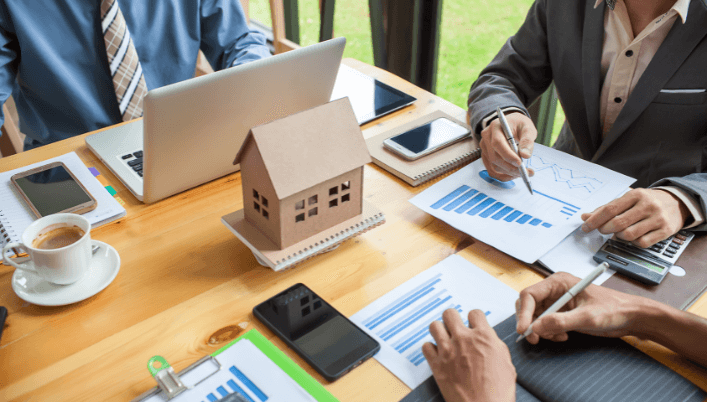
Foreigners looking to buy property in Singapore often wonder about the financing options available to them.
This article will cover the mortgage options for foreigners, the downpayment requirements, and other costs associated with buying property in Singapore.
Mortgage Options for Foreigners
Foreigners have the option to finance their property purchases through local banks in Singapore.
However, it is important to note that the loan amount offered to foreigners may be lower compared to what is available for Singapore citizens and permanent residents.
When applying for a mortgage as a foreigner, banks will consider several factors, including your credit score, employment history, and income stability.
It is advisable to have a good credit history and a stable income source to increase your chances of approval.
The maximum loan-to-value ratio (LTV) for foreigners is typically around 75% of the property value.
This means that you will need to have a higher downpayment compared to local buyers.
It is important to research and compare mortgage loan packages from different banks to find the best terms and interest rates.
Downpayment Requirements for Foreigners
Foreigners are required to pay a higher downpayment compared to Singapore citizens and permanent residents.
The downpayment can range from 25% to 40% of the property value, depending on the bank and the individual’s profile.
It is important to note that the downpayment must be made using funds from a legitimate source.
Banks typically require proof of income and may request additional documentation to verify the source of funds.
For foreigners looking to generate rental income from their property, it is important to consider the potential rental yield and whether it can cover the monthly mortgage payments.
This will help ensure a sustainable investment and reduce the risk of financial strain.
Other Costs Associated with Buying Property in Singapore
In addition to the mortgage, there are other costs associated with buying property in Singapore.
These include:
- Conveyancing Fee: This fee covers the legal work involved in transferring ownership of the property. It is usually a percentage of the property value.
- Registration Fees: These fees include the registration of the property and the mortgage with the Singapore Land Authority.
- Taxes: Buyers are required to pay Buyer’s Stamp Duty (BSD) on the purchase price of the property. The BSD rates vary depending on the property value and the buyer’s residency status.
- Other Financial Considerations: It is important to assess your financial situation and ensure that you can comfortably afford the monthly mortgage payments. Consider factors such as your monthly income, expenses, and economic fundamentals that may affect the property market.
Foreigners should also be aware of other ongoing costs such as property taxes, maintenance fees, and sinking fund contributions.
These expenses can vary depending on the type of property and the facilities it offers.
In conclusion, foreigners looking to buy property in Singapore have mortgage options available to them through local banks.
However, it is important to understand the downpayment requirements, and other associated costs, and have a stable financial profile.
Consulting with a licensed property agent can provide valuable guidance and help ensure a smooth financing process.
Getting Approval to Buy Property in Singapore as a Foreigner
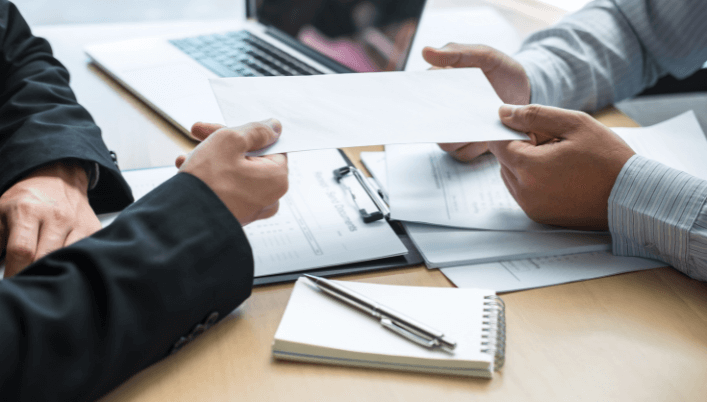
Foreigners looking to buy property in Singapore may wonder about the process and requirements for obtaining approval.
In this article, we will explore who needs approval to buy property in Singapore, how to apply for approval, and the factors that can affect the approval process.
Who needs approval to buy property in Singapore?
Under the Residential Property Act, only Singapore Citizens (SC) and Singapore Permanent Residents (SPR) are generally allowed to buy property in Singapore without approval.
Foreigners, on the other hand, typically require approval before they can purchase property.
Foreign property ownership is restricted to certain criteria and conditions.
Non-permanent residents, such as Employment Pass or Dependent Pass holders, are required to seek approval from the Land Dealings Approval Unit (LDAU) before they can buy property in Singapore.
However, some types of properties, such as restricted properties or those designated for public housing, are not available for foreign ownership.
How to apply for approval to buy property in Singapore
To apply for approval, foreigners must submit their application to the LDAU.
The application process involves providing relevant documents, including proof of residency status and information about the intended property purchase.
It is important to note that the approval process can take some time, so it is advisable to start the application process well in advance.
Key factors considered in the approval process include the applicant’s residency status, economic policies, and market conditions.
The Singapore government aims to ensure that the property market remains stable and that Singaporeans have fair access to housing.
Factors that affect the approval process
Several factors can affect the approval process for foreigners looking to buy property in Singapore.
These factors include:
- Economic Policies: The Singapore government’s economic policies play a crucial role in determining the availability and eligibility criteria for foreign property ownership.
- Market Properties: The availability of properties in the market and the demand for housing can influence the approval process. During periods of high demand or limited supply, the government may impose stricter regulations on foreign ownership.
- Property Buyers: The government also considers the overall impact of foreign property ownership on the local housing market. Balancing the needs of Singaporeans and foreign buyers is an important consideration.
It is important to keep in mind that approval under the Residential Property Act is not guaranteed.
Each application is reviewed on a case-by-case basis, taking into account various factors.
In conclusion, foreigners looking to buy property in Singapore need to obtain approval from the Land Dealings Approval Unit.
The approval process involves submitting relevant documents and meeting certain criteria.
Factors such as economic policies, market conditions, and the impact on the local housing market can influence the approval process.
It is advisable to seek professional guidance and start the application process early to ensure a smooth and successful property purchase in Singapore.
Conclusion
After considering the various aspects and regulations surrounding property ownership for foreigners in Singapore, it is evident that there are opportunities for foreigners to purchase property in the country.
However, certain restrictions and criteria must be met to ensure that the individuals or entities making these purchases contribute to the local economy and abide by Singapore’s laws.
Foreigners who wish to buy residential properties for their stay have options such as Executive Condominiums (ECs), resale HDB flats, and private housing.
They must meet certain requirements, including being a Singapore Citizen or Permanent Resident, and for ECs, fulfilling a 5-year minimum occupation period.
Additionally, foreigners with Singapore Citizens or Permanent Resident spouses are also eligible to buy resale EC units.
Foreigners interested in purchasing private properties in Singapore have fewer restrictions compared to residential properties.
They can buy non-landed private residential properties such as condominiums and apartments, subject to the legal and financial requirements set by the government.
As part of the process, foreigners are required to seek the assistance of a licensed property agent to buy the property.
However, restrictions apply for foreigners who want to purchase a landed residential property, such as a strata landed house.
These properties can only be purchased with prior approval from the Singapore Land Authority, and foreigners are not allowed to purchase a house that is not within an approved area.
In terms of taxation, any person who wishes to purchase property in Singapore must also consider the tax implications.
Assessable income, including employment income, is subject to tax in Singapore.
Therefore, foreigners need to understand and comply with the tax obligations associated with owning property in Singapore.
Overall, while there are restrictions and regulations in place, foreigners with adequate economic contributions to Singapore are eligible to buy and own property in the country.
Singapore’s property market offers various options for foreigners who wish to invest or live in the country.
Potential buyers need to seek legal advice and understand the details of the property they wish to purchase.
For foreigners looking to buy property in Singapore, it is advisable to engage the services of a reputable property agent who can assist them throughout the process.
The local property market is constantly evolving, and having professional guidance can help foreigners navigate through the complexities of buying property in Singapore.
By following the regulations and requirements set by the government, foreigners can make informed decisions and contribute to Singapore’s real estate market while enjoying the benefits of owning property in this vibrant city-state.
Frequently Asked Questions
Can foreigners buy property in Singapore?
Yes, foreigners can buy property in Singapore.
However, there are certain restrictions and guidelines that they need to follow.
What is the Residential Property Act?
The Residential Property Act is a set of regulations in Singapore that governs the ownership of residential properties by foreigners.
Do foreigners need approval to buy residential property in Singapore?
Yes, foreigners need to seek approval from the government to buy certain types of residential properties in Singapore, such as landed residential properties.
Can foreigners buy landed property in Singapore?
Yes, foreigners can buy landed property in Singapore, but they need to obtain approval under the Residential Property Act.
Who can help foreigners buy property in Singapore?
Foreigners can engage the services of a property agent to facilitate the purchase of property in Singapore.
Can foreigners who are Singapore Permanent Residents buy property in Singapore?
Yes, Singapore Permanent Residents have more flexibility in buying property in Singapore compared to foreigners who do not hold permanent residency.
What types of properties can foreigners buy in Singapore?
Foreigners can buy various types of properties in Singapore, including condominiums, apartments, and landed residential properties.
Do foreigners need to pay additional taxes when buying property in Singapore?
Yes, foreigners are required to pay additional taxes such as the Additional Buyer’s Stamp Duty (ABSD) when purchasing residential property in Singapore.
What is the market value of the property?
The market value of a property refers to the estimated price that the property would fetch in an open market.
Can foreigners buy leasehold estate in a landed residential property?
Yes, foreigners can buy leasehold estate in a landed residential property, subject to approval under the Residential Property Act.











